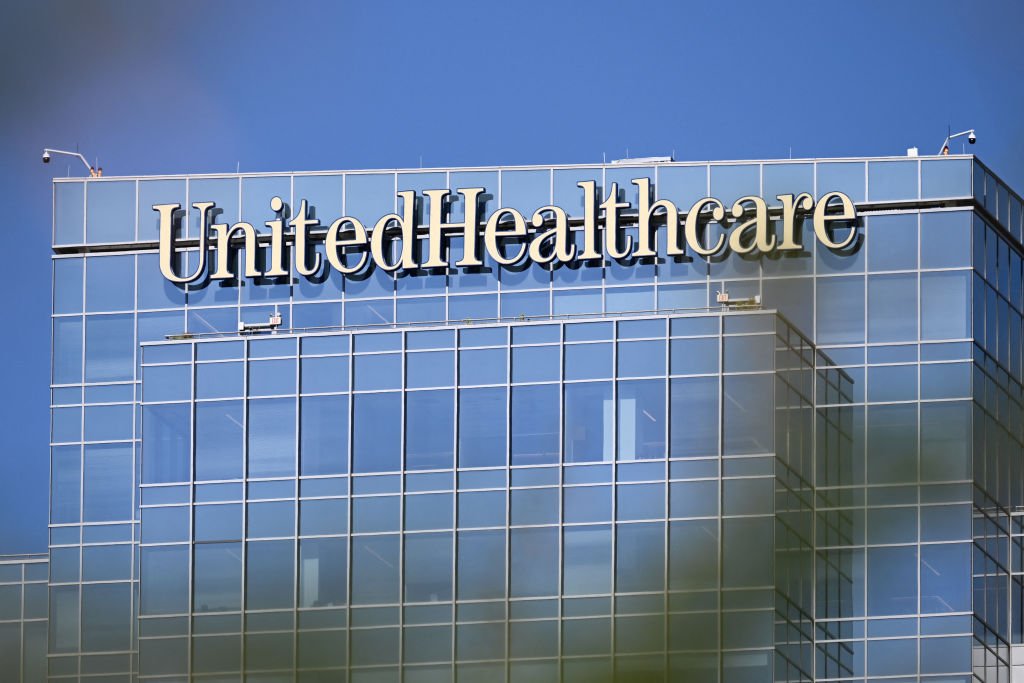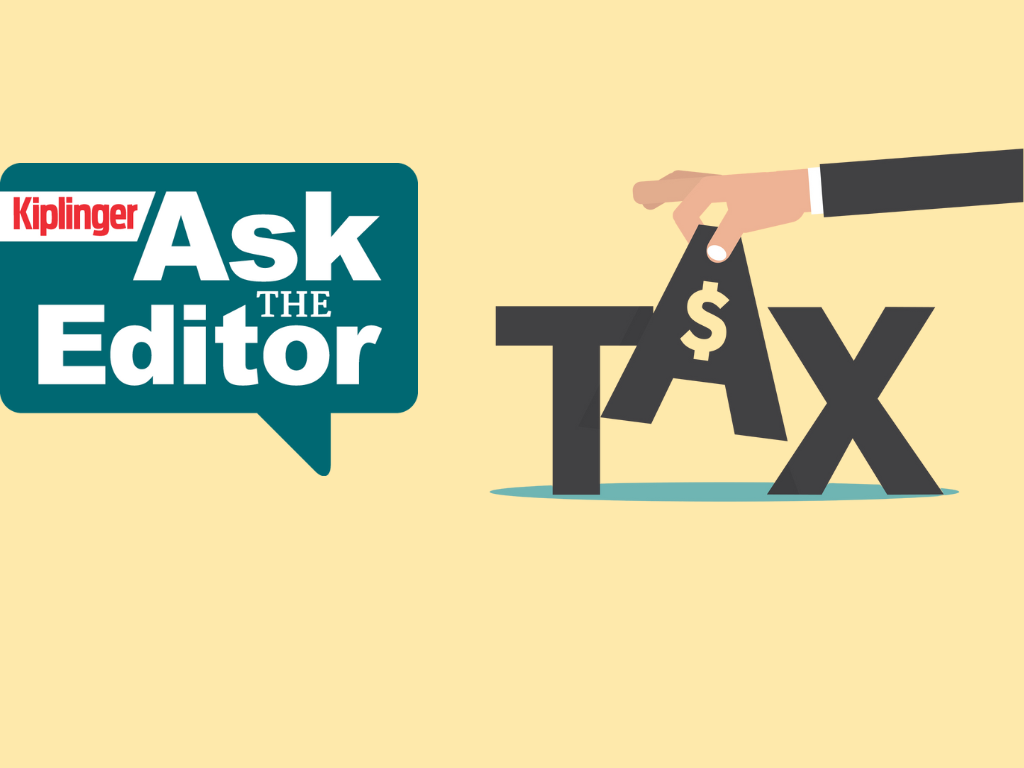Change Healthcare Data Breach: What to Know for Your Social Security Number and More
If you got a notification about the Change Healthcare data breach that happened in February, there are some steps you should take.


Profit and prosper with the best of Kiplinger's advice on investing, taxes, retirement, personal finance and much more. Delivered daily. Enter your email in the box and click Sign Me Up.
You are now subscribed
Your newsletter sign-up was successful
Want to add more newsletters?

Delivered daily
Kiplinger Today
Profit and prosper with the best of Kiplinger's advice on investing, taxes, retirement, personal finance and much more delivered daily. Smart money moves start here.

Sent five days a week
Kiplinger A Step Ahead
Get practical help to make better financial decisions in your everyday life, from spending to savings on top deals.

Delivered daily
Kiplinger Closing Bell
Get today's biggest financial and investing headlines delivered to your inbox every day the U.S. stock market is open.

Sent twice a week
Kiplinger Adviser Intel
Financial pros across the country share best practices and fresh tactics to preserve and grow your wealth.

Delivered weekly
Kiplinger Tax Tips
Trim your federal and state tax bills with practical tax-planning and tax-cutting strategies.

Sent twice a week
Kiplinger Retirement Tips
Your twice-a-week guide to planning and enjoying a financially secure and richly rewarding retirement

Sent bimonthly.
Kiplinger Adviser Angle
Insights for advisers, wealth managers and other financial professionals.

Sent twice a week
Kiplinger Investing Weekly
Your twice-a-week roundup of promising stocks, funds, companies and industries you should consider, ones you should avoid, and why.

Sent weekly for six weeks
Kiplinger Invest for Retirement
Your step-by-step six-part series on how to invest for retirement, from devising a successful strategy to exactly which investments to choose.
It's been a scary year for protecting your personal information. A breach at AT&T announced this summer impacted nearly all customers — not to be confused with another AT&T data breach disclosed this spring. There was a breach at Roku and a settlement for Cash App customers after data breaches. And last month, a cyberattack at National Public Data was confirmed.
It's hard to keep track of where your data is at risk, making me feel a bit like a cartoon character figuring out which hole to plug next. Amidst all of that, there was also a data breach at Change Healthcare, which is owned by UnitedHealth. This impacted a massive amount of people; an exact number hasn't been indicated, but Change Healthcare says "the impacted data could cover a substantial proportion of people in America," and the U.S. Department of Health and Human Services (HHS) Office for Civil Rights (OCR) noted the cyberattack's "unprecedented magnitude."
While the Change Healthcare data breach took place in February, people started getting notifications about it in late summer and into the fall. Whether you got a letter or not, there are some action items you should take to protect your identity and finances. Here's what you need to know about the Change Healthcare breach.
From just $107.88 $24.99 for Kiplinger Personal Finance
Become a smarter, better informed investor. Subscribe from just $107.88 $24.99, plus get up to 4 Special Issues

Sign up for Kiplinger’s Free Newsletters
Profit and prosper with the best of expert advice on investing, taxes, retirement, personal finance and more - straight to your e-mail.
Profit and prosper with the best of expert advice - straight to your e-mail.
What was the Change Healthcare data breach?
While you may never have heard of Change Healthcare before, there's a high chance you've encountered it. Change Healthcare is a health payment processing company that works on billing and insurance for many health systems including hospitals, medical offices and pharmacies.
In February, hackers breached Change Healthcare. TechCrunch reported at the time it was linked to a Russian-based ransomware group, where hackers demand a ransom. On Feb. 21, Change Healthcare said, the health company began taking steps to stop the hack.
"A substantial quantity of data" was taken from Change Healthcare, the company said.
You may remember that around this time, from February and into the spring, there were major disruptions in healthcare. That included problems with insurance approvals, including payments systems and Medicare reimbursements. Those disruptions were because the company was shutting down certain accesses to try to stop the attack.
The cyberattack and its disruptions led to plenty of questions and investigations about how this happened, including questions from congressmembers and an investigation from the HHS.
During a hearing before the Senate Committee on Finance, UnitedHealth Group CEO Andrew Witty said the company paid a $22 million ransom to the hackers in response to the attack.
What data was part of the Change Healthcare breach?

Data collected in this cyberattack was widespread. It included, per Change Healthcare:
- Names and dates of birth
- Addresses, phone numbers and email addresses
- Health insurance member and group ID numbers, and Medicare payor ID numbers
- Health information, including medical record numbers, diagnoses, test results, medicines and treatment
- Billing and claim information, including billing codes and claim numbers, as well as balance due
- Payment information, including financial and banking information and payment cards
- Social Security numbers
- Driver's licenses, state ID numbers and passport numbers
The company said "the information that may have been involved was not the same for every impacted individual," and it "cannot confirm exactly what data has been affected for each impacted individual."
Change Healthcare also said it has "not yet seen full medical histories or doctors’ charts appear in the data review," and that some information may have been related to guarantors who paid for healthcare services, not patients themselves.
How to know if you were part of the Change Healthcare data breach
As mentioned, Change Healthcare has started to send out letters to people whose data was impacted by this cyberattack. The company said it began sending written letters, via mail, on July 29 and is continuing to send out notices as it identifies people.
However, the company also notes that it may not have proper mailing addresses for all impacted individuals, so even if you didn't receive a letter, there's a chance you were part of the data breach.
What to do to protect your data
Because of the widespread impact of this data breach, Change Healthcare is offering free credit monitoring and identity theft protections for two years to "anyone who believes they may have been impacted." To access this, you can scroll down to the words "What can you do now?" on this page and click "Enroll now." You can also call 1-888-846-4705 to enroll yourself.
Change Healthcare also has a dedicated call center available both to access those services and to access emotional support services. You can reach that call center at 1-866-262-5342.
There are several things to do right away if you're a victim of a data breach, many of which Change Healthcare also recommends. That includes monitoring your credit reports and financial accounts, looking for anything that looks unusual. You can also freeze your credit accounts to protect your credit. Change Healthcare additionally recommends monitoring your healthcare explanation of benefits statements for anything that looks off.
Kiplinger also recommends you change your password on key accounts, including changing your Social Security login. You can use password managers like 1Password to store your passwords and create extra-secure ones.
For an additional measure of safety, set up multifactor authentication for key accounts, which means, for example, to log into a bank account, you need to enter a password and a code texted to your phone number. In fact, Witty of UnitedHealth told the Senate the hackers were able to get into a server because it didn't have multifactor authentication, so you can understand how useful a safety measure that is.
Related content
Profit and prosper with the best of Kiplinger's advice on investing, taxes, retirement, personal finance and much more. Delivered daily. Enter your email in the box and click Sign Me Up.

Alexandra Svokos is the digital managing editor of Kiplinger. She holds an MBA from NYU Stern in finance and management and a BA in economics and creative writing from Columbia University. Alexandra has over a decade of experience in journalism and previously served as the senior editor of digital for ABC News, where she directed daily news coverage across topics through major events of the early 2020s for the network's website, including stock market trends, the remote and return-to-work revolutions, and the national economy. Before that, she pioneered politics and election coverage for Elite Daily and went on to serve as the senior news editor for that group.
Alexandra was recognized with an "Up & Comer" award at the 2018 Folio: Top Women in Media awards, and she was asked twice by the Nieman Journalism Lab to contribute to their annual journalism predictions feature. She has also been asked to speak on panels and give presentations on the future of media and on business and media, including by the Center for Communication and Twipe.
-
 Money Questions Couples Should Ask Before Combining Finances or Planning a Future Together
Money Questions Couples Should Ask Before Combining Finances or Planning a Future TogetherHonest financial conversations can reduce stress, strengthen trust and help couples align long-term goals.
-
 Ask the Tax Editor: IRAs
Ask the Tax Editor: IRAsAsk the Editor In this week's Ask the Editor Q&A, Joy Taylor answers questions on IRAs
-
 At-Fault States Where No-Fault Insurance Still Applies
At-Fault States Where No-Fault Insurance Still AppliesThink you live in an at-fault car insurance state? These four still have some tricky no-fault insurance laws you should know about.
-
 4 At-Fault States With No-Fault Insurance Rules You Should Know
4 At-Fault States With No-Fault Insurance Rules You Should KnowThink you live in an at-fault car insurance state? These four still have some tricky no-fault insurance laws you should know about.
-
 For More Flexible Giving, Consider Combining a Charitable Remainder Trust With a Donor-Advised Fund
For More Flexible Giving, Consider Combining a Charitable Remainder Trust With a Donor-Advised FundIf a charitable remainder trust puts too many constraints on your family's charitable giving, consider combining it with a donor-advised fund for more control.
-
 Big Change Coming to the Federal Reserve
Big Change Coming to the Federal ReserveThe Lette A new chairman of the Federal Reserve has been named. What will this mean for the economy?
-
 How to Budget as a Couple Without Fighting About Money
How to Budget as a Couple Without Fighting About MoneyThese tips will help you get on the same page to achieve your financial goals, with minimal drama.
-
 These Thoughtful Retirement Planning Steps Help Protect the Life You Want in Retirement
These Thoughtful Retirement Planning Steps Help Protect the Life You Want in RetirementThis kind of planning focuses on the intentional design of your estate, philanthropy and long-term care protection.
-
 Is There a Downside to Switching Your Insurance Frequently?
Is There a Downside to Switching Your Insurance Frequently?You keep finding lower rates every time you shop for insurance. Is there any reason not to take the better deal?
-
 Hosting a Family Reunion? 10 Essentials for a Lasting Legacy
Hosting a Family Reunion? 10 Essentials for a Lasting LegacyRekindle old friendships, pass down traditions and have a ball at your family reunion. We answer 10 common planning questions.
-
 A Wake-Up Call and a Healthy Dose of Terror: How to Survive Your First Days in Prison
A Wake-Up Call and a Healthy Dose of Terror: How to Survive Your First Days in PrisonThis young man needed to be scared straight after his mother expressed her fear that he was on a path to prison. Hearing these eight do's and don'ts worked.